City-as-Lab Workshop Plants the Seed for the Future of Urban Sustainability
Sixty-three sustainability professionals gathered on New York Tech’s New York City campus for the City-as-Lab Research Coordination Network (RCN) workshop, funded by the National Science Foundation.
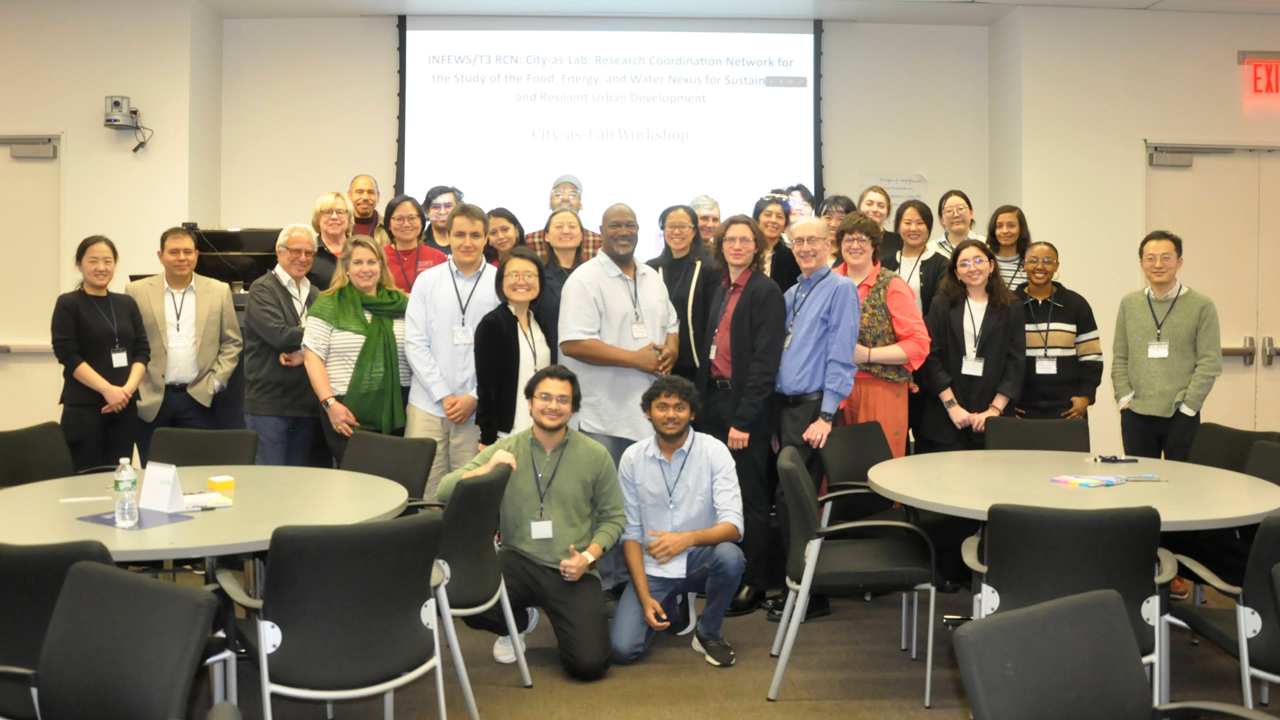
The eclectic group, made up of students, professors, scientists, engineers, and community leaders from across the country, represented universities, government agencies, and sustainability-focused organizations such as TigerMountain Foundation and FieldKit. Despite their diverse backgrounds, the attendees were united in their shared mission to develop actionable plans to advance sustainable food, energy, and water (FEW) systems in urban environments through research and practice.
The City-as-Lab workshop, held March 31 to April 1, provided a structured and supportive space for the attendees to reflect on their past achievements, highlight insights and progress, share current research and best practices, and, more importantly, look to the future by engaging in new collaborations and working together to identify the next steps for their work in urban sustainability.
New York Tech Professor of Electrical and Computer Engineering Ziqian (Cecilia) Dong, Ph.D., led the planning for the event along with steering committee members from the City University of New York, New Jersey Institute of Technology, Arizona State University, the University of Minnesota, New York University, and with support from computer science Ph.D. candidate Maria-Victoria Vladucu (B.S. ’21, M.S. ’22). Facilitator Gemma Jiang, Ph.D., a senior team scientist for Colorado State University, guided the participants through the event.
College of Engineering and Computing Sciences Dean Babak D. Beheshti, Ph.D., kicked off the first day of the workshop by welcoming the guests and reflecting on the success and innovation of past workshops. “Let us imagine the next phase of urban sustainability,” he said. “One that is inclusive, resilient, and informed by both science and lived experience.”
The workshop provided a forum for attendees to learn from each other’s work through Q&As with the organizing committee and professional guests, as well as a panel discussion. Panelists shared insights from their work, the challenges they faced, and advice for future projects. Some ideas included continuing more community-based interactions, encouraging harmony with nature through community gardens, and leaving the environment better than how they found it.
The second day began with a series of reflections. Each participant expressed their thoughts on the previous day’s workshop and shared their goals for the final day of the event.
The final activity of the workshop involved Strategic Doing, an innovative, scientific process for generating solutions through collaboration. The attendees split into groups to tackle three sustainability goals: bridging academia and communities, the sustainable use of resources, and food systems. The participants chose a framing question—Imagine data and science are turned into meaningful outcomes for communities and their gardens. What will that look like?—and got to work.
Using Strategic Doing to guide them, the teams identified each person’s unique assets, leveraged them to brainstorm solutions, then identified their “big easy,” the easiest and most impactful idea. The teams presented their solutions to the room: establishing an academic sustainability forum for the community, mapping to find and show clusters of urban food best practices, and an app that connects consumers with food before it becomes waste. Participants shared connections and advice across the room to ensure the success of each action plan’s implementation.
“I really valued the opportunity to collaborate with people from different walks of life, different backgrounds, and different agendas. It’s exciting in one way, but the hard work is later, making things happen,” said Sarah McPherson, a former professor at New York Tech.
More News
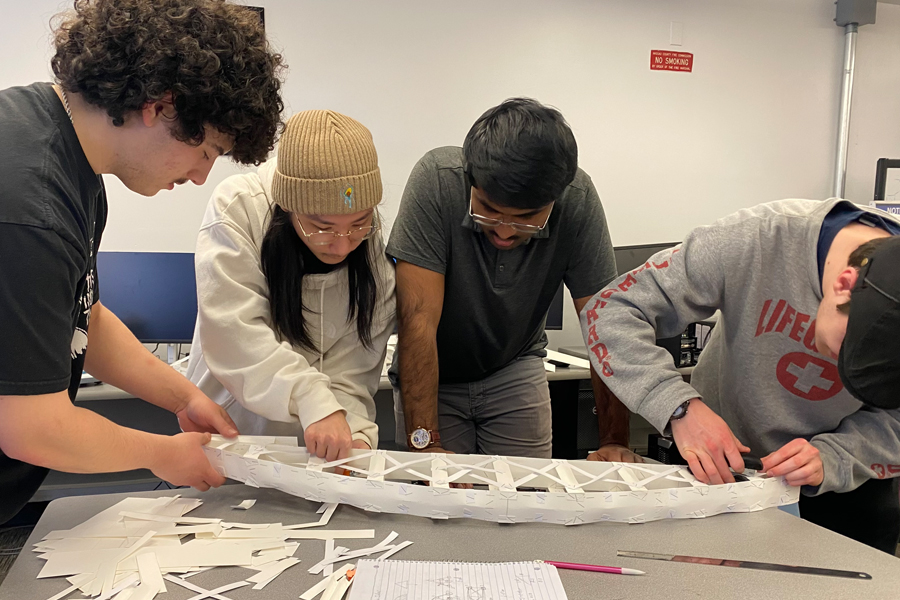
Building Bridges
New York Tech students earned first place at the 2026 KEEN Bridge Design Competition for their outstanding bridge design and structural efficiency.
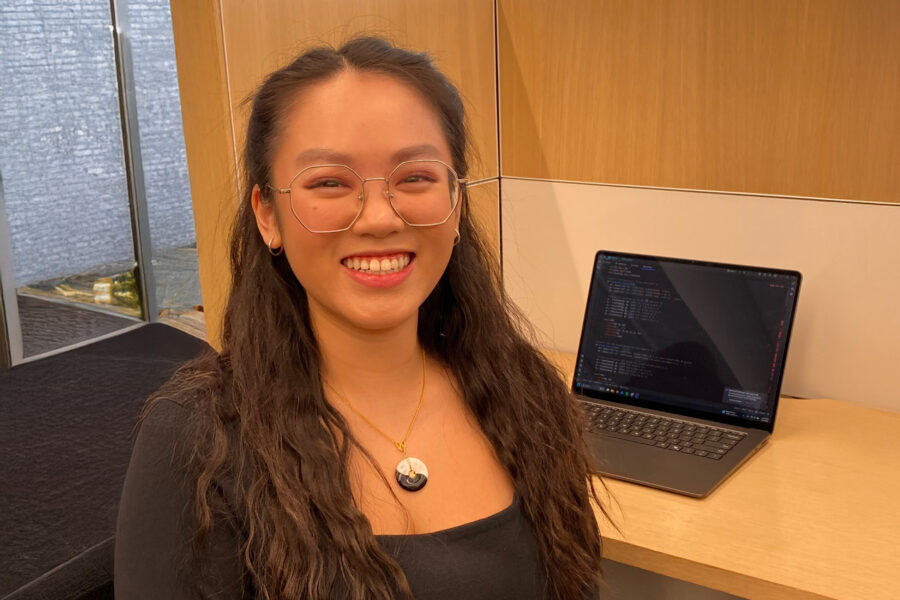
Making an Impact
As an ETIC engineer, computer science student Angelina Do is working on a project in partnership with a former NBA star aimed to help children who stutter.
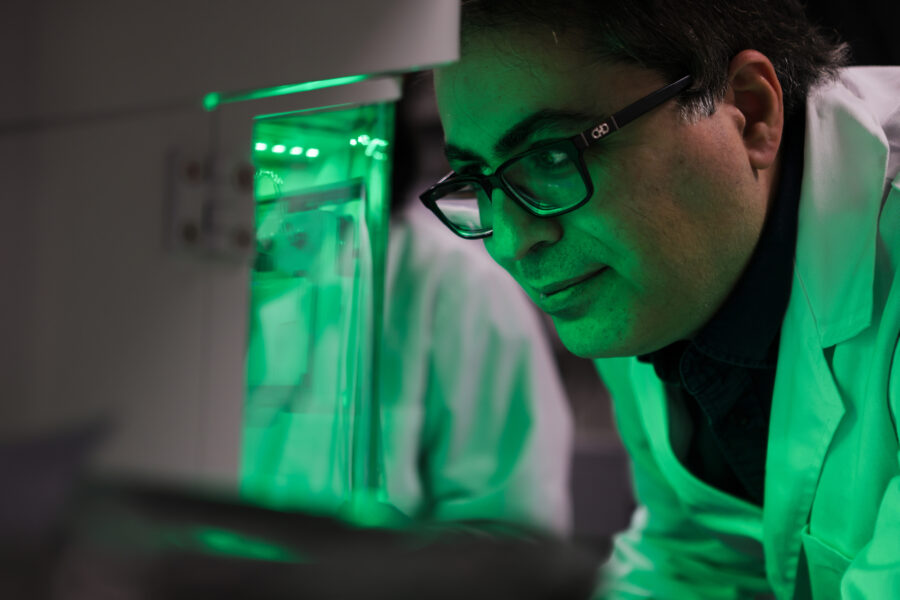
Realistic 3-D Colon Model Shifts Paradigm for Drug Development
Assistant Professor Steven Zanganeh, Ph.D., is striving to further improve the model he developed to open the door to drug development for cancer and other conditions.
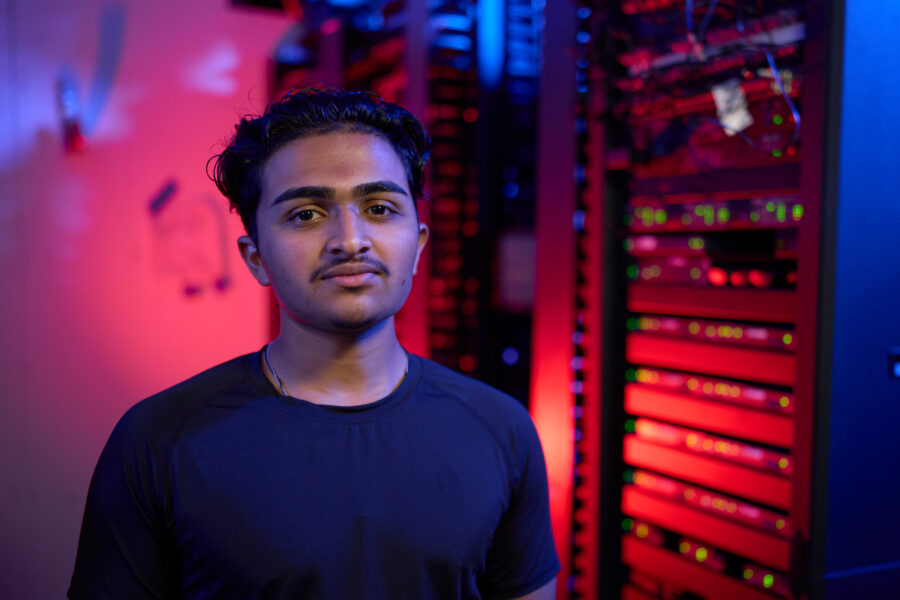
Intentional Technology
Computer science student Tejas Attavar is putting his tech skills to altruistic use.
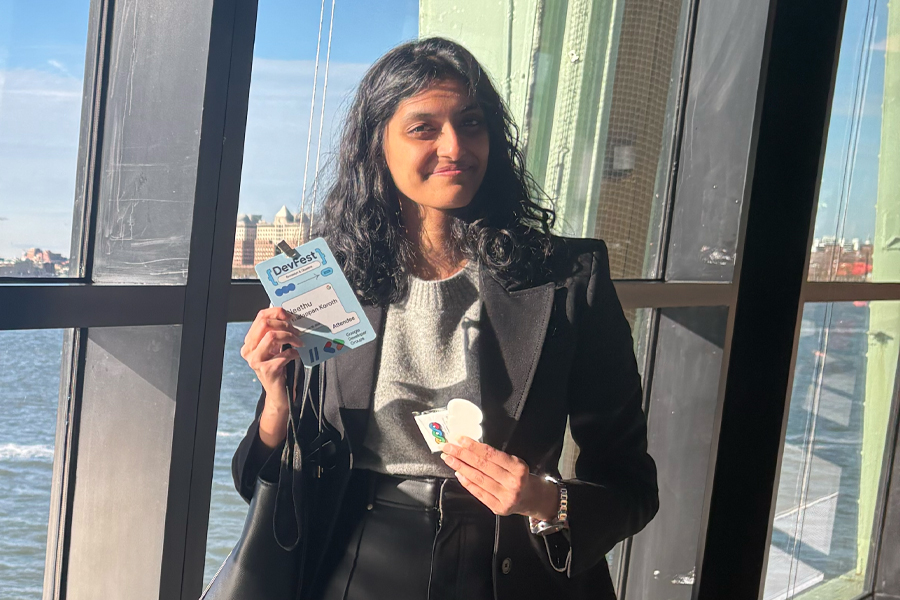
Her World Through Code
Graduate computer science student Neethu Thalappan Koroth thrives in her field of study while becoming involved in several on-campus projects to deepen her expertise.
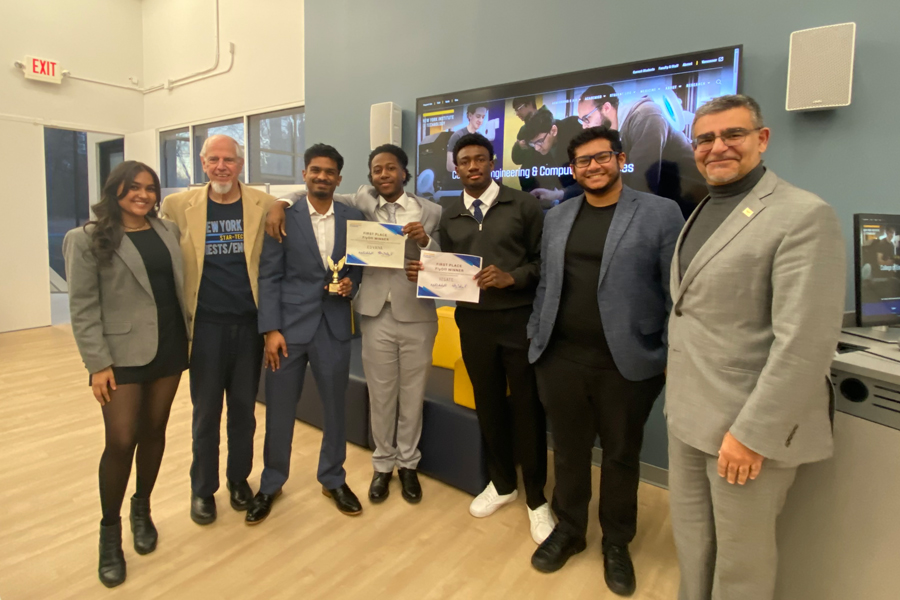
Student Entrepreneurs Share Big Ideas
Students gathered at the Innovation and Entrepreneurship Academy’s Startup Tech Central to present their startup companies at the third NESTS FlyOff event.